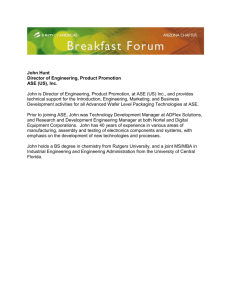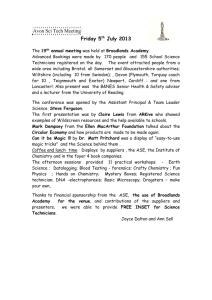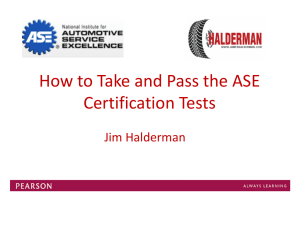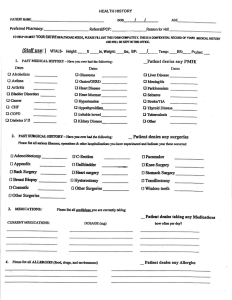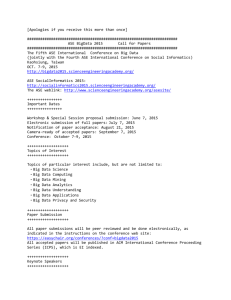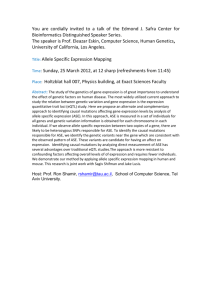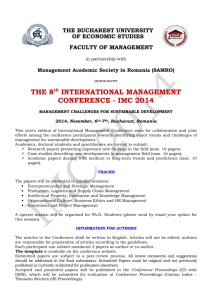ASE Certification Tests
advertisement
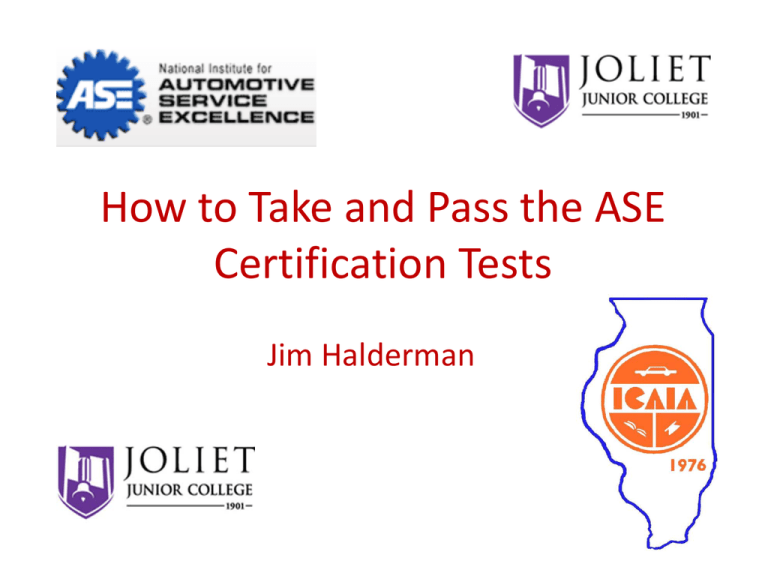
How to Take and Pass the ASE Certification Tests Jim Halderman Topics to be Discussed • • • • • • • Why take the ASE tests? How questions are written? Who writes the questions? “Distractors” “Key” How to prepare for the tests Tips and tricks Why Take the ASE tests? • Dealers- All warranty work must be done by certified technicians. • Independent shops being ASE certified is a huge plus and can make a difference when it comes to be hired • Gives new technicians an advantage over those who do not have certification Who writes the ASE questions? • All are “subject matter experts” (SMEs) coached as to how to write good questions. • Questions are submitted and approved by the committee. • Checked for proper wording and grammar. Experienced-Based Questions • ASE will not ask for specifications • Questions are vehicle brand neutral • Includes questions such as “What can cause lower-than-normal oil pressure?” How do you take a test? • Do you rush? (normal) • Do you hate tests? (normal…no one likes tests) • Are you nervous? (again normal reaction) • All you want to do is go home (right?) How do you analyze questions? • Do you read every question twice? • Do you skim read the question? • Do you stop at the first answer that sounds right? • Try the next series of questions……………. Test question #1 Which is the correct answer? 1.Question…………….. A. xx B. xxxx C. xx D. xx Answer to Question #1 Often B. • With instructor made tests, it is very common for the longest answer to be the correct answer. • ASE asks the subject matter experts (SMEs) to try to keep all answers to the same length Test Question #2 Which is the correct answer? 2. Question…….. A. 3 B. 5 C. 8 D. 12 Answer to Question #2 • When a list of numbers is presented, it is common practice to delete the high and low and then guess if the correct answer is not known. • This increases the chances from 25% to 50% (doubles) your chances of getting the right answer by guessing. • ASE tries to avoid doing this by making the answers random. Test Question #3 Which is the correct answer? 3. Question…… A. xx B. xx C. xx D. xx Answer to Question #3 • Many people will select “C”. • Many instructors want to “bury” the answer so they avoid making the correct answer the first or second one in the list. • In fact, studies have shown that “C” is right about 33% of the time compared to 25% of the time in a normal random test. • ASE tries to avoid doing this by making the answers random. Nurses and Technicians • Told that in some testing, nurses were given an automotive test and technicians were given a nursing test. • In some cases, some nurses and technicians passed using basic test taking skills. The “KEY” • The key is the correct answer • ASE states that there is only one true correct answer The “Distractors” • The distractors are the other answers that are NOT correct. • They are reasonable and might be close to the correct answer but are not correct. Percentages • ASE wants technicians to pass • The pass rate is “about 70%” of those who take the test with a score of about 65% or higher • Distractors should be selected by about 10% to be a good distractor TECH A and B Questions • Hard for many • Just two true and false questions • Look at each one separately. • Do not try to figure out what both are saying together. How to take the tests • Read and understand each question. • Read each answer • Try to eliminate the wrong answers (distractors) SAMPLE #1 Two technicians are discussing the cause of low oil pressure. Technician A says that a worn oil pump could be the cause. Technician B says that worn main or rod bearings could be the cause. Which technician is correct? a. Technician A only b. Technician B only c. Both Technicians A and B d. Neither Technician A nor B Answer to Sample #1 • The answer is C (both technicians are correct) • Technician A is correct because a worn oil pump could cause low oil pressure. • Technician B is correct because worn main or rod bearing will cause excessive leakage and therefore lower than normal oil pressure SAMPLE #2 All of the following components can cause excessive play in the steering wheel except: a. A worn U-joint between the steering gear and the steering column shaft b. A worn outer tie rod end c. Loosened steering gear attachment bolts d. Over tightened center link retaining nuts Answer to Sample #2 • The correct answer is d. • The question asks which answer would NOT cause excessive play in the steering wheel. • Answer A can cause play • Answer B can cause play • Answer c can cause play SAMPLE #3 The front of the vehicle dips downward in the front during light braking. Which of the following is the most likely cause? a. An internally leaking master cylinder b. A defective metering valve c. A defective proportioning valve d. Air in the lines Answer to Sample #3 • The correct answer is b. • A defective metering valve could cause the front brakes to be applied sooner than the rear causing the front to dip down. • Answer a cannot cause this to occur • Answer b cannot cause this to occur Answer c cannot cause this to occur SAMPLE #4 If a component such as a dome light has power (voltage) on both the power side and the ground side of the bulb, this indicates ________. a. A defective (open) bulb b. A short-to-ground c. A corroded bulb socket d. An open ground-side circuit Answer to Sample #4 • The correct answer is d. • Voltage is available up to the point of an open. • Answers a, b and c would not cause voltage to be at both sides of the bulb. Tips • Look at the answers and try to match up the best one as the key. • Look for key words such as: always, never, could (rather than will), such as this could cause that etc. Do not relate questions to a recent repair • This is hard NOT to do. • You just had a similar situation on a white Chevy and the problem was……….. • Try to avoid doing thinking about your recent experience Do not read anything into the question! • Very common for test takers to read into the question more than what was included. • “Now if this was this, then that would happen………” Analysis Paralysis • You can talk yourself into almost any answer if you think about the questions too long. • Read and understand the question. • Pick and select your first choice. Never change an answer • Unless you now realize what the answer is or you misread the question. • Changing an answer is likely to result in selecting a wrong answer. • Best to stay with your first choice Watch your time • But don’t let the time tell you what to do. • Plan on one minute per question. • If spending a lot of time, move on. • The program will let you know which ones you skipped FAQs • Should I guess if I don’t know the answer? • Yes • Is each test the same every time I take it? • No • Can I skip questions I don’t know and come back to answer later? • Yes Prepare • Get a good nights rest • Do NOT eat a big meal before the test. • If possible take a nap before the test….. being rested and alert is very important. Resources from ASE • http://www.ase.com/testingtips/index.html • (Tips for taking the ASE tests) • http://www.ase.com/Test-PrepTraining/Study-Guides/Download-theGuides.aspx • (Free downloadable study guides) www.jameshalderman.com • FREE sample ASE test questions WITH answers and explanations. • 15 for each area • 120 total questions Teach an ASE prep class • Adds interest in your community • Increase your income • Can be for credit or non-credit • Use this Power Point and the Halderman website Summary 1. Tests are written by SMEs 2. Each question has only one key 3. The distractors are written to be incorrect but plausible. 4. Take your time (one minute per question) 5. Do not “read” anything into the questions 6. Arrive rested Good Luck jim@jameshalderman.com
